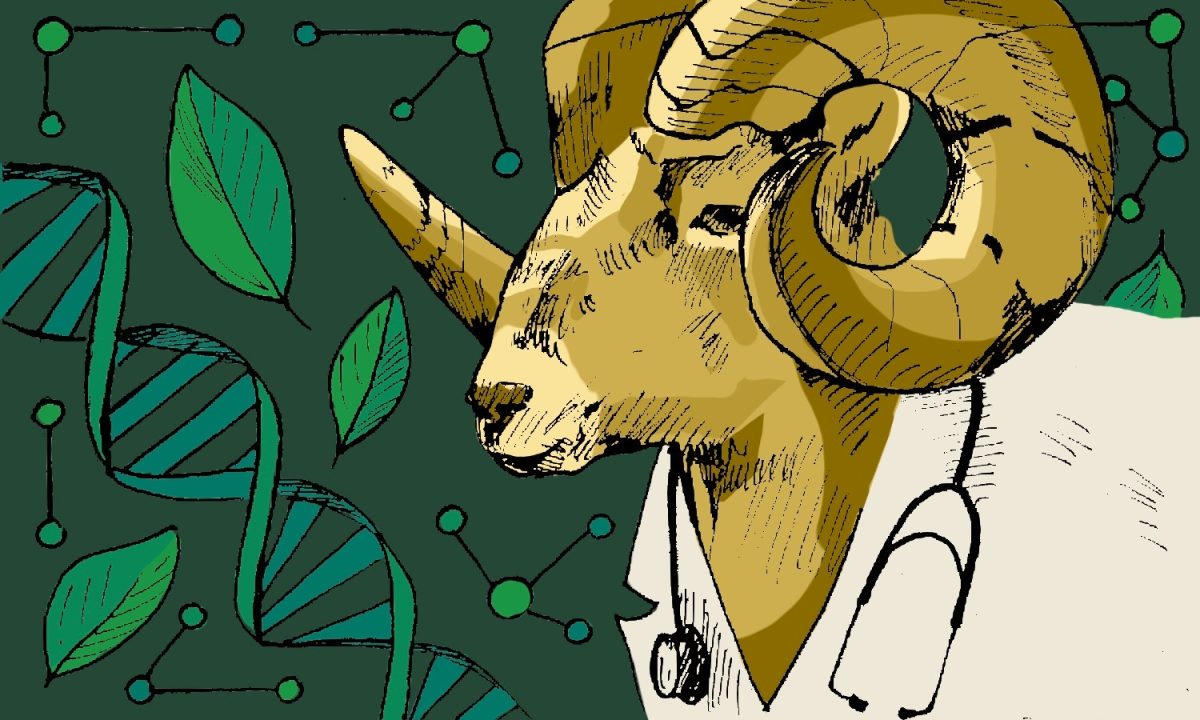Former Director for the National Park Service Jonathan Jarvis made an appearance at Colorado State University on March 22 to talk with students and the community about his position as the director as well as what individuals can do going forward for conservation of national parks.

Jarvis served for the National Park Service for over 40 years and in 2009 Jarvis was confirmed as the director during President Barack Obama’s first term in office.
After retiring in early 2017, Jarvis has took the position of executive director for the Institute for Parks, People and Biodiversity at the University of California, Berkeley.
With the recent release of his newest book, “The Future of Conservation in America: A Chart for Rough Waters,” Jarvis has begun a tour to 18 different universities across the nation to “promote a national dialogue on conservation.
Jarvis started this tour at CSU, describing it as a sort of “ranger factory” for the National Park Service.
“I can find no better place to start that conversation than here at Colorado State University,” Jarvis said.
Jarvis’ speech began by discussing his thoughts around the current administration’s views on conservation as well as his thoughts on America’s path forward. These reasons, Jarvis explained, are also why he and co-author Gary Machlis wrote their book.
“We wanted to sound the alarm that the Trump administration’s current assault on conservation,” Jarvis said. “We wanted to use the lessons we have learned throughout our careers as what we described this current time as ‘rough water,’ and how it is impacting the American landscape and how this may even unfold beyond this administration.”
Jarvis explained that not only was this book written to discuss concerns that Jarvis and Machlis held but also create a set of practical strategies going forward.
“It’s not enough to just be outraged. It’s not enough to just have resistance,” Jarvis said. “We’ve got to have a strategy.”
These 14 strategies are based on the intelligence and experience of Jarvis and Machlis. Some of the strategies include the creation of data havens, training scientists to be able to communicate better, especially in court, to engage with youth in nature hands-on, and to expand the American story by making all Americans feel they are apart of their nation’s history.
“These stories need to be told,” Jarvis said.
Jarvis went on to explain that he wanted to end his speech on a positive note, to get away from the “doom and gloom” that he discusses in his book. Jarvis emphasized that the new generation of conservationists will be important in this movement, which is a movement that will use his strategic movements and embrace them.
“We believe this movement is to be led by a new generation,” Jarvis said.
After his speech, Jarvis took questions from the audience and discussed the importance of active listening during his tour to universities and how to help get younger generations involved.
Ryan Finchum, the co-director of the Center for Protected Area Management, stated that Jarvis’ visit to campus was an opportunity to promote awareness around campus about national parks.
“Sometimes we forget that we have such an important role at Colorado State University on this topic,” Finchum said. “We have a lot of centers, individual faculty and students that are out doing research in parks and protected areas around the world. So, we felt this would be a really good opportunity to bring more awareness and bring the community together around this topic.”
Nicole Brandt Turner, a graduate student in the Warner College of Natural Resources, said that she went to the event because of her strong support for the National Park Service as well as interest for Jarvis’ viewpoint.
“I’m really passionate about conservation and pursuing a career in conservation and natural resources,” Brandt Turner said. “The problem of conservation moving forward is complex, it’s multifaceted. There’s not a single solution and there’s not a single simple answer.”
Jarvis left the audience with his thoughts on the next generation.
“I have spent a lot of time working with young people, and I am in complete awe with your generation,” Jarvis said. “You will figure it out. You’ll use technology, you’ll use social media, you’ll use new networks, you’ll figure out new methods to create new companies and organizations to build new coalitions. We will win this.”
Collegian reporter Austin Fleskes can be reached at news@collegian.com or on Twitter @Austinfleskes07.











